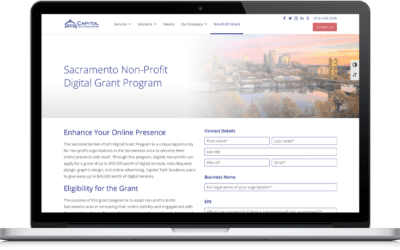4 Tips on Reputation Management for your Online Business

A recent report by Forbes.com indicates that 97% of business owners within the hospitality and travel industry feel that reputation management is critical to the success of their business.
The article goes on to illustrate that a single negative review or negative feedback appearing on the first page of search results for your business can result in a 22% loss in business, while multiple negative reviews can lead to a nearly 60% decline.
Bright Local, a global user experience platform focusing on local business, published a 2019 study indicating that 84% of consumers trust online reviews as much as a personal referral and 49% of consumers are seeking a 4-star rating before choosing a service or product.
The evidence is mounting that regardless of your size or industry, your online reputation has the power to “make or break” your business. Today’s digital world allows prospects, customers, competitors, friend and foe to tweet, post or review about your products, services and even employees.
The CTS user experience team strongly believes that social media monitoring and management as part of online reputation management are integral components of your success. Our team has put together a shortlist of proactive online reputation management practices that can benefit your business.
Who Writes Reviews?
While there are some people that will never leave a review, there are others that feel a responsibility to provide feedback related to a uniquely positive or negative experience.
We have found that there are several types of reviewers, including;
- A consumer who wishes to share dissatisfaction following a negative experience
- A consumer who wishes to express praise following a positive experience
- A consumer who wants to feel a sense of power or influence through their review
- A consumer who is attempting to demonstrate knowledge, sense of taste or style
- A consumer who would like to be included within a group or community.
Learning to assess the type of reviewer commenting on your business provides great insight into constructing your response.
Know thy platforms
As Google is the most widely used web browser, defining the standard in search queries and page rankings, a business can begin to build its brand by creating a Google My Business listing. A verified business account on Google is free and it allows you to link your website to the listing and include key information for consumers such as contact information, business hours and location. Optimize your Google My Business profile with a description of your business, photos, and post while encouraging engagement through messaging and reviews.
Helpful Hint: Be sure that the contact information – email address, telephone number, physical address and hours are accurate and consistent across social media.
YELP, Amazon, Trustpilot, Angie’s List, Better Business Bureau (BBB) and Manta are a few of the most widely used review platforms for products and services. But don’t overlook reviews in the forms of comments within social platforms including Facebook, LinkedIn, Twitter and Instagram.
Build Positive Brand Image
Digital communications provide a vast reach to your target audience within your local region and across wider demographics. Social media presence now plays an integral role in increasing the visibility of your business and reaching a larger audience.
Creating a strategy to develop your brand identity for your business and its products is just one step in defining your digital presence. By defining your brand identity and the personas of your target audience, you are more likely to attract like-minded audience members to engage with your posts, leading to additional dialogue and conversions.
One of the most effective ways to illustrate the positive culture of your business is by encouraging your employees to post and interact on your social media platforms, further reinforcing the positive profile of your business.
Respond to reviews (Negative + Positive)
We recommend to our clients that they respond to all reviews. However, a negative review should to be responded to immediately. Being able to recover from a negative review helps repair the customer experience.
Reputation management helps build trust and credibility for your business. Responding to your reviews can help restore your credibility. If a customer sees unanswered negative reviews, it will give your customers a bad impression of your business and drive them away.
For all reviews, we encourage our clients to respond to their customers in a positive way.
Understand the reviews
It’s also important to go over your reviews to help improve your online reputation. During our monthly meetings with clients, we thoroughly examine their reviews and strategize how to best respond from an internal organization standpoint. We listen to the reviews and summarize them to our clients so that they understand what their customers are saying.
Helping our clients understand what their customers are saying out there to optimize their business and run their business better is a large piece of reputation management. Reputation management isn’t only learning from past mistakes and poor reviews, it’s about paying attention to customers and continuing to understand to optimize their business.
Contact Our Team
Don’t know where to start or can’t find the local talent you need to launch your new digital masterpiece? Let our team of experienced professionals help you map out your next project or fix an existing one that needs attention.


